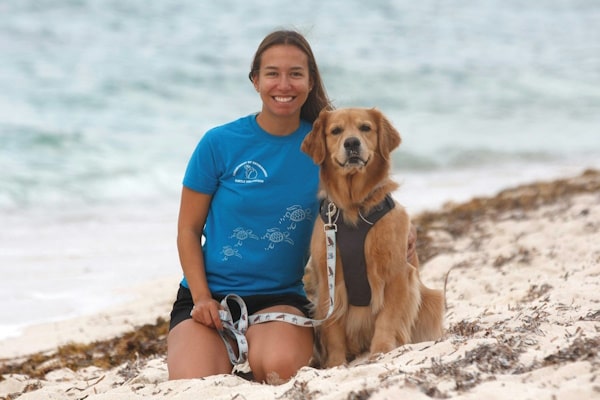🐢 First sea turtle detection dog begins work on Cayman Islands beaches
🐾 Bell, the golden retriever, assists in tracking disoriented hatchlings during turtle nesting season

The Department of Environment (DoE) on the Cayman Islands has introduced a new member to its Marine Turtle Beach Monitoring programme. Bell, a golden retriever, has been trained to track sea turtle hatchlings that have become disoriented due to artificial lighting. The pilot study, led by DoE Coral Reef Management team member Stephanie Gunby, is a partnership with the Cayman Turtle Centre: Island Wildlife Encounter, which provides scent samples, and DoE Enforcement Supervisor Maggie Baldino, who has a background in detection dog training and handling. 🐕
The use of conservation canines has proven successful in other jurisdictions for both turtle research and other wildlife projects. However, Bell is potentially the first of her kind in the region. The DoE has emphasized that this type of detection work should only be conducted with specially trained dogs and has urged pet owners to prevent their dogs from interfering with local wildlife. The department also reminds the public to keep a safe distance from mating or nesting sea turtles to avoid disrupting their natural behavior and affecting their reproductive success. 🐢
Disturbing sea turtles can lead to unsuccessful mating or cause them to abandon nesting sites, which can negatively impact future populations. It is recommended to maintain a distance of 100 feet (30 meters) from nesting or mating turtles. Disturbing sea turtles is not only harmful but also illegal, as all turtles are endangered and protected under the law. The public is encouraged to report any turtle disturbances or suspicious activity to the Turtle Hotline. 📞





